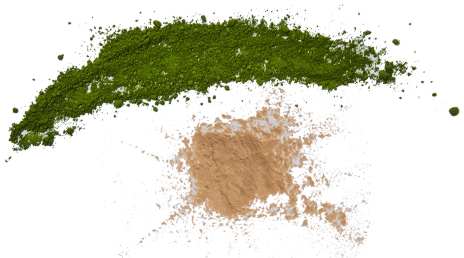Identifying A Trustworthy Manufacturer For Your Business
Research and Preparation
Choosing the right manufacturer for your business is a crucial decision that can have a lasting impact on the success of your product or service. Knowing the factors to consider and researching thoroughly before committing to any one supplier can save time, money, and stress for your business down the line. In this article, we'll explore the key factors to consider when identifying a trustworthy manufacturer, such as industry knowledge, production volume, quality control standards and processes, and more. Read on to learn how to make an informed and advantageous decision for your business.Industry Knowledge
When choosing a manufacturer for your business, it is important to do your research and make sure you are selecting a trustworthy and reliable supplier. It is essential to have a thorough understanding of the industry and the different types of manufacturers to ensure that you are making the best choice for your business. In this section, we will provide some tips for identifying a trustworthy manufacturer, as well as a breakdown of the different types of manufacturers available.
The first step in identifying a trustworthy manufacturer is to do research on the company's reputation. Be sure to read customer reviews, check out their website, and contact the Better Business Bureau to verify that the business is legitimate. If a company has a history of unhappy customers or poor customer service, it is likely not a reliable supplier. Additionally, if the company has not been in business for at least five years, it is important to be extra cautious and research the company thoroughly.
The next step in determining if a manufacturer is trustworthy is to inspect their production process. If possible, visit the manufacturer's facility to view the production line and get an understanding of the product's journey from start to finish. A reliable manufacturer should be able to answer questions about the quality of their materials and should also be open to suggestions for improvements.
In addition to researching a company's reputation and production process, it is essential to understand the different types of manufacturers available. There are three main types of manufacturer: direct manufacturer, contract manufacturer, and turnkey manufacturer. Direct manufacturers produce products themselves, while contract manufacturers produce products for other companies and are usually more cost-effective. Finally, turnkey manufacturers offer the full package, from product design to production. Depending on your business needs, one type may be more suitable than the other.
Identifying a trustworthy manufacturer is a crucial step in ensuring that your business runs smoothly and efficiently. By doing research, inspecting production processes, and knowing the different types of manufacturers, you can make an informed decision that will benefit your business in the long run.
Product Requirements
When it comes to sourcing products for your business, finding a trustworthy manufacturer is one of the most important steps in the process. The success or failure of your product line largely hinges on the quality and reliability of the supplier or manufacturer - from the production process to delivery schedules. So, how can you be sure that the manufacturer you choose is the right one?
First, you'll want to assess their production capabilities. Ask the manufacturer to provide you with detailed information about their production process and the materials they use. Make sure they have the capacity and capability to meet your production requirements and that their raw materials are of the highest quality.
Next, you'll want to inquire about their delivery schedule. Ask for a timeline of the entire process, from production to delivery. Find out when their deliveries usually arrive, and if there are any delays or discrepancies, make sure to document them.
The next step is to evaluate the manufacturer's customer service. How responsive are they to your queries? Do they provide help and support when you need it? Are they willing to go the extra mile to make sure that you and your business are satisfied?
It's also important to ensure that the manufacturer is reputable. Do some research and find out what other businesses are saying about them. Check their website and social media profiles to see if they have any reviews or testimonials that can give you an idea of their reputation and business practices.
Finally, don't forget to set clear guidelines for the project. Be sure to clearly state what you expect from the manufacturer in terms of production quality, delivery timelines, and customer service. Working with a manufacturer who understands and respects your expectations will help you get the most out of your partnership.
By taking the time to assess the right manufacturer for your business, you can rest assured that you are sourcing products of the highest quality for your customers. With a well-vetted supplier, you can ensure quality and reliability throughout the entire production process.
Testing Procedures
When it comes to sourcing a reliable manufacturer for your business, it is important to take the time to properly assess their testing procedures. From the product's initial design phase to its final delivery, manufacturers should have comprehensive testing policies in place to ensure that their goods meet the highest standards of quality. Here are some of the key testing procedures a trustworthy manufacturer should have in place:1. Quality Plan: All manufacturers should have a quality plan in place that outlines the specific protocols and processes they will use to ensure quality and safety. This plan should include the manufacturer's methods and tools for testing the product, including any standards they adhere to and any safety measures they will take.
2. Pre-Production Inspection: A reliable manufacturer should conduct a pre-production inspection to make sure that the components and materials used in the production process meet their quality standards. This inspection should also check for any production issues that could potentially result in a faulty product.
3. Production Test: During production, manufacturers should conduct extensive tests to make sure the final product meets their desired specifications. The tests should include inspection of the quality and performance of the item, and whether the item meets any required standards or regulations.
4. Quality Assurance: Once the product has been manufactured, the supplier should have a quality assurance program in place to test the product's quality and safety. This program should involve a series of tests and inspections conducted throughout the manufacturing process to make sure the product meets the manufacturer's standards and those of the regulations.
By making sure that the manufacturer you choose follows these steps, you can be sure that the products you receive will be of the highest quality and safety. By taking the time to properly assess their testing procedures, you can ensure that your business is based on a foundation of quality and reliability.
Understanding a Manufacturer's Capacity
A manufacturer's capacity is a very important factor to consider when choosing a reliable supplier for your business. It's important to understand the scope of the manufacturer's production capabilities and how they can ensure consistent quality and timely delivery of your products.When evaluating a manufacturer, it's important to look at the company's overall production and supply chain capabilities. What resources do they have? How many equipment and machinery they have to support large-scale production? How do they ensure that products are made using reliable and safe materials?
You should also consider the manufacturer's supplier network. What raw materials and components do they source from? How do they ensure the quality and consistency of these materials? Are these suppliers reliable, and able to respond quickly to changing customer needs?
In addition to the factors mentioned above, it's also important to understand the manufacturer's track record for producing quality goods. Do they have the capacity and expertise in providing quality assurance and product testing? How do they track customer complaints and make sure that their goods are safe and in compliance with local and international standards?
Finally, you should also have an understanding of the manufacturer's production capacity. Do they have the necessary infrastructure and resources in place to meet any sudden changes in order volumes? Can they scale their production up or down as necessary in order to meet customer demands?
By understanding the manufacturer's capacity, you can ensure that you have a reliable supplier that can provide consistent quality products in a timely fashion. It will also give you more confidence in the product you are getting, as you can be sure that it has been produced with the utmost care.
Production Volume
When searching for a trustworthy manufacturer, one of the key considerations to take into account is production volume. Finding a manufacturer who can provide sufficient production volume is important, not only to meet the demand of your customers in a timely manner, but also in terms of cost. Large production volume usually results in lower production costs, which means that you can significantly reduce your expenses and increase your profit margins.
Before you choose a manufacturer, it is important that you research the estimated production volumes that they are able to handle. Many manufacturers will have stated production volumes available on their website or other marketing materials, but it is recommended that you also contact them directly just to be sure. It is important to ask the manufacturer detailed questions about their production capacity, what kind of machinery they have, and how quickly they can turn around orders.
Having established the estimated production volume of the manufacturer, you can then compare it to the anticipated demand of your customers. It is essential to make sure that the manufacturer you choose is capable of meeting the demand of your customers. If you are unable to find a manufacturer with a production volume that is sufficient for the anticipated demand, then you might need to consider a supplier with a slightly higher production volume.
Finally, when selecting a manufacturer for your business, it is important to ensure that their production volume is flexible and capable of being increased or decreased as needed. This flexibility is key, as it allows you to adapt to any unexpected fluctuations in customer demand. Many manufacturers offer flexible production volumes, so it is important to find one that can offer the level of flexibility that you need.
In summary, when choosing a manufacturer, it is important to consider production volume. Ensure that the manufacturer can provide enough production volume to meet your customer's demand, and make sure that the production volume is flexible and capable of being increased or decreased as necessary. Doing this research up front will help you find a reliable, trustworthy manufacturer for your business.
Quality Control Standards and Processes
Quality control is an essential element when selecting a trustworthy manufacturer for your business. Quality control systems and processes ensure that your products or services meet the requirements of your customers and meet industry standards. When selecting a manufacturer, it is important to ensure that they adhere to quality control standards and processes.
The main goal of quality control is to maintain the quality of products or services provided by a manufacturer. The quality control process involves evaluating materials, works in progress and finished products to determine if they meet the requirements of your customers and industry standards. Quality control processes not only help you to ensure that your product meets the necessary standards and requirements but also help you to identify any potential issues before they become too difficult to remedy. Quality control processes help to ensure that a manufacturer is providing you with the highest quality product or service.
Manufacturers should have an established quality control process which provides assurance that the materials and processes used in production meet the necessary standards. This includes inspecting raw materials to ensure they are free from defects, conducting tests during the production process to ensure that the products or services meet the required specifications, and conducting a final inspection to check the quality and accuracy of the finished product or service.
Additionally, manufacturers should have systems and procedures in place that ensure that suppliers meet quality standards as well as a system of control to ensure that they are meeting their commitments. This involves monitoring and inspecting the suppliers' production process, ensuring that materials and equipment used meet the required standards, and performing regular reviews to ensure that the suppliers are meeting their commitments.
Finally, it is important to ensure that the manufacturer is committed to continuous improvement. This means that the manufacturer should have systems and processes in place to ensure that any issues identified during quality control processes are addressed and rectified. This is essential for ensuring that your products or services meet the requirements of your customers and industry standards.
Quality control is essential when selecting a trustworthy manufacturer for your business. It is important to ensure that the manufacturer has established quality control standards and processes in place and that they are committed to continuous improvement. By doing so, you can be confident that the manufacturer will provide you with the highest quality products or services.
Supply Chain Management
Supply Chain Management (SCM) is a vital part of the operations of any business. Finding the right manufacturer, supplier, and production process to ensure the product delivered to the customer meets their expectations is key. Identifying a trustworthy manufacturer for your business can be a time consuming and difficult process, but one that is essential for success.First, it is important to research potential manufacturers. Check to see that they are compliant with any country or industry related regulations, as well as any environmental or health and safety regulations. Be sure to also check that they have a good track record in terms of quality of production and adhere to their commitments to their clients. Additionally, try to establish a good relationship with the manufacturer - be sure to visit their facilities, ask for references, and make sure that the pricing structure is transparent and fair.
Second, when selecting a manufacturer, be sure to consider their production capabilities. Check to see what type of production processes they can offer and how they compare to others available in the market. Additionally, make sure to pay attention to their production capacity, labor costs, and availability of materials. It is also important to consider the manufacturer's ability to respond to changes in demand quickly, as well as their knowledge of new manufacturing technologies.
Third, it is essential to create a clear and comprehensive contract with the manufacturer. Be sure to negotiate all production timelines and payment terms in detail. Additionally, make sure to agree on a method of quality assurance and dispute resolution, in case there are any issues with the product being delivered.
Finally, it is essential to create a system to monitor the progress of your project. This will enable you to spot any potential issues in the supply chain and take corrective action as soon as possible. Be sure to also analyze the performance of the manufacturer regularly, in order to ensure that they continue to be a reliable partner.
In conclusion, identifying a trustworthy manufacturer for your business is an essential step in the supply chain management process. The steps outlined here provide a good starting point for ensuring you select the right partner for the job. However, the success of your business depends on consistently monitoring and evaluating the performance of your manufacturer and regularly reviewing the terms of your contract with them.
Communication and Logistics
When it comes to identifying a trustworthy manufacturer for your business, communication and logistics should be a primary consideration. A reliable manufacturer should be easy to contact and willing to have open and honest conversations with their customers. They should be able to provide clear and accurate explanations of their production process and be able to answer any inquiries about their services. Furthermore, the manufacturer should take responsibility for their mistakes and be willing to help resolve any issues.The manufacturer should demonstrate an understanding of logistical requirements and be able to meet the customer's delivery needs. They should be aware of the different regulations and certification standards required in the destination country or region, and be able to ensure their products comply. Additionally, they should be transparent in their pricing, giving customers a comprehensive breakdown of production costs.
Overall, communication and logistics are key to ensuring your business partnership with the manufacturer is a success. By establishing a clear line of communication between both parties and defining realistic expectations, your business can benefit from having a reliable manufacturer by your side.
Lead Times
Lead times are an important factor when considering a potential manufacturer for your business. Lead time refers to the time it takes from when an order is placed to when the product is received. Generally, the longer the lead time, the higher the cost of production. This means that a manufacturer with a long lead time may be more expensive and not as timely.Manufacturers vary in their lead times, so it's essential to ask about their lead times upfront. The lead time will depend on the type of product and the complexity of the manufacturing process. It's important to ask questions such as: How long does it take to process an order? What type of production schedule is used? How will you notify me if there's a delay in production?
In addition, it's important to always talk to the supplier about their lead times before placing an order. Some manufacturers may offer rush delivery or other expedited options, so it's important to understand the full range of options.
It's also important to ensure that the supplier has a reliable and efficient supply chain. This means that the supplier should have established relationships with their suppliers and be able to provide evidence of their quality control processes. The supplier should also have a good understanding of the manufacturing process and be able to explain any potential delays that may arise.
Finally, it's important to look for manufacturers that have a track record of meeting deadlines. Be sure to ask for references and a list of customers that have worked with the manufacturer in the past. If a manufacturer is consistently meeting deadlines and delivering high-quality products, then it's likely that they are a reliable partner for your business.
Lead times are an important factor when considering a potential manufacturer for your business. When evaluating lead times, it's important to ask questions, ensure that the manufacturer has a reliable and efficient supply chain, and look for manufacturers with a track record of meeting deadlines. Doing so will help ensure that you find a reliable and trustworthy supplier that is able to deliver high-quality products on time and on budget.
Shipping and Delivery
When searching for a manufacturer or supplier to fulfill your business's production needs, it is important to understand their shipping and delivery protocols. Shipping and delivery are key factors in the success of your business; a trustworthy manufacturer should have a reliable shipping and delivery system in place.
In regard to shipping, ask the manufacturer or supplier about their policies for packaging and shipping the goods. It is important to ensure that the goods are properly labeled for shipment, and that any additional paperwork is provided with the shipment. Make sure you know the average transit time for the goods to be delivered and ask about any special services that could be provided, such as tracking information, delivery notifications, and insurance.
In terms of delivery, it is important to know the delivery window established by the manufacturer or supplier. Find out if they utilize a third-party delivery service and if they have any restrictions on delivery such as time of day and location. Additionally, ask the manufacturer or supplier if you can arrange for pick-up or drop-off of the goods.
Finally, ask the manufacturer or supplier if they provide return policies, in case the goods are damaged or lost during delivery. It is important to find out if they offer a refund policy, or if they are willing to replace the goods.
Shipping and delivery are key components in the process of finding a trustworthy manufacturer or supplier. Consider these factors when evaluating your options, and make sure to ask the manufacturer or supplier about their policies. With the right shipping and delivery protocols in place, you can ensure that you are working with a reliable source for your business's production needs.
Return Policies
When looking for a reliable manufacturer for your business, return policies should be a key focus. A manufacturer's return policy can indicate the company's care and respect for customer needs, as well as the production standards and quality of the products. Having a straightforward return policy that allows customers to return faulty items or products they are unhappy with is evidence that the manufacturer is trustworthy.Returns can often be a sign of customer satisfaction and loyalty, particularly when it comes to manufacturers. If a customer is willing to pay shipping costs to return a product, then the manufacturer must have created a good product and satisfied the customer. It's important for manufacturers to be transparent about their return policies and all associated costs, such as return shipping fees, restocking fees, or other fees associated with returns.
When it comes to suppliers, having a reliable return policy is just as important. Suppliers should outline their return policies and make them publicly available, as this helps to ensure that customers understand the terms and conditions in which they are purchasing. If a supplier charges a restocking fee, they should provide a clear explanation of why it exists. Furthermore, suppliers should ensure that their return policies are flexible, as this allows them to be responsive to customer needs.
In addition to return policies, manufacturers and suppliers should ensure that the production of their products is up to standard. This can be achieved through rigorous quality control, inspections, and testing. It is important to ensure that all products are produced with high-quality materials and meet industry and safety standards to ensure customer satisfaction and safety.
When investigating a potential manufacturer or supplier, paying attention to their return policies and production standards is key. Doing so allows customers to feel secure that their purchase is genuine and of good quality. Manufacturers and suppliers should make sure that their return policies and production standards are transparent, as this can have a major impact on customer satisfaction and loyalty.
Comparing Manufacturers
When it comes to ensuring quality products for your business, it is essential to have reliable and trustworthy manufacturers to produce those goods. Identifying a trustworthy manufacturer can be a daunting task and requires careful research and due diligence. Here are a few key factors to consider when comparing different manufacturers.
First, you will want to look at the suppliers and manufacturers a potential partner uses. Make sure that these suppliers have been vetted and have a track record of supplying safe and reliable products. Ask the manufacturer to provide a list of references from previous projects that they have completed. This can help you better understand the quality of their production and service.
It is also important to review the company's production processes. Do their manufacturing facilities adhere to tight quality control measures? Is the production process well-documented? Do the manufacturer's staff have the proper training and skills to guarantee consistent results? By asking the manufacturer for detailed information about the production process and operational standards, you can ensure that the products you receive will be of the highest quality.
Another important factor to consider is the cost of the production. Different manufacturers may offer different prices, so be sure to compare the pricing of each option. Keep in mind that cheaper is not always better and that opting for the lowest price may not guarantee quality products.
Finally, pay close attention to the company's customer service and delivery options. Is the manufacturer willing to provide consultations and help you walk through the entire process? Are the delivery times reliable and timely? A reliable manufacturer should be able to provide you with clear expectations regarding timelines and customer service.
By researching potential manufacturers thoroughly and taking a closer look at their production processes, suppliers, prices, and customer service, you can ensure that you select a trustworthy manufacturer that will produce quality products for your business.
Costs
When it comes to running a successful business, one of the most important decisions you have to make is to find a reliable, trustworthy manufacturer to supply your goods. You need to take into consideration all the costs associated with the production and shipping of your goods before settling on a particular supplier.
The first step to evaluating potential manufacturers is to identify each manufacturer's cost structure. This information can usually be found on the manufacturer's website, or by contacting the manufacturer directly. Find out what each manufacturer charges for the goods (raw materials, components, and finished goods) and services (engineering, assembly, shipping) that you need. When evaluating costs, you should take into account all the fees, taxes and any other service fees. Consider the quality of the goods and services you receive, but also the reputation of the manufacturer in terms of reliability and quality.
In addition to the cost associated with working with a particular manufacturer, you also need to consider the reliability of the supplier. You need to confirm that the supplier is capable of delivering quality products in a timely manner. To do this, you can visit online reviews, ask for references and speak with other companies who have used the supplier in the past. It is also important to have a good understanding of the production and delivery processes, so you can be sure that your deliveries reach their destination on time.
Finally, you should consider customer service. It is important to ensure that the manufacturer is willing to work with you and provide support as needed. Ask questions about customer service, turnaround time, and any other related issues. A reputable manufacturer should be willing to answer your questions and be open to hearing your feedback.
In conclusion, when it comes to choosing the right manufacturer for your business, you need to take into consideration all the costs associated with the production and shipping, the reliability of the supplier, and the customer service they offer. Don't forget to research each potential supplier thoroughly before making a decision. This will help ensure that you get the best quality and service for your money.
Customer Service
When searching for a reputable and trustworthy manufacturer for your business, customer service should be at the top of your list of considerations. Customer service refers to the level of quality service and communication a manufacturer provides to customers, ensuring that their needs and expectations are met in a timely and satisfactory manner.
To evaluate a manufacturer's customer service, review the manufacturer's history and past successes. If the manufacturer has been in business for several years and has a good track record, it's likely that their customer service is reliable. Also, ask for references and reviews from previous customers to determine how well the manufacturer serves their customers. Talking to previous customers can be an invaluable source of information about the manufacturer's customer service.
In addition, pay attention to how the manufacturer communicates with their customers. Is the staff friendly and professional, and do they respond to inquiries quickly and thoroughly? Do they provide timely updates and accurate information? Manufacturers who regularly communicate with their customers are more likely to offer superior customer service.
Make sure to also inquire about the manufacturer's production capabilities. Do they have the right equipment and necessary processes to produce the products you need? Do they have the capacity to quickly and efficiently meet your production requirements? Do they have the experience and know-how to handle complex projects?
Finally, evaluate the supplier's reputation. Do they have a good reputation among their customers? Are their products and services frequently praised? Are they a trusted source for supplies and materials? Taking this step will help you to make sure that you're choosing a reliable manufacturer for your business.
By carefully evaluating a manufacturer's customer service, production capability, and reputation, you can make sure that you're selecting the right supplier for your business. By choosing a trustworthy manufacturer with a proven track record of providing quality customer service, you'll be sure to get the highest quality products and services.





